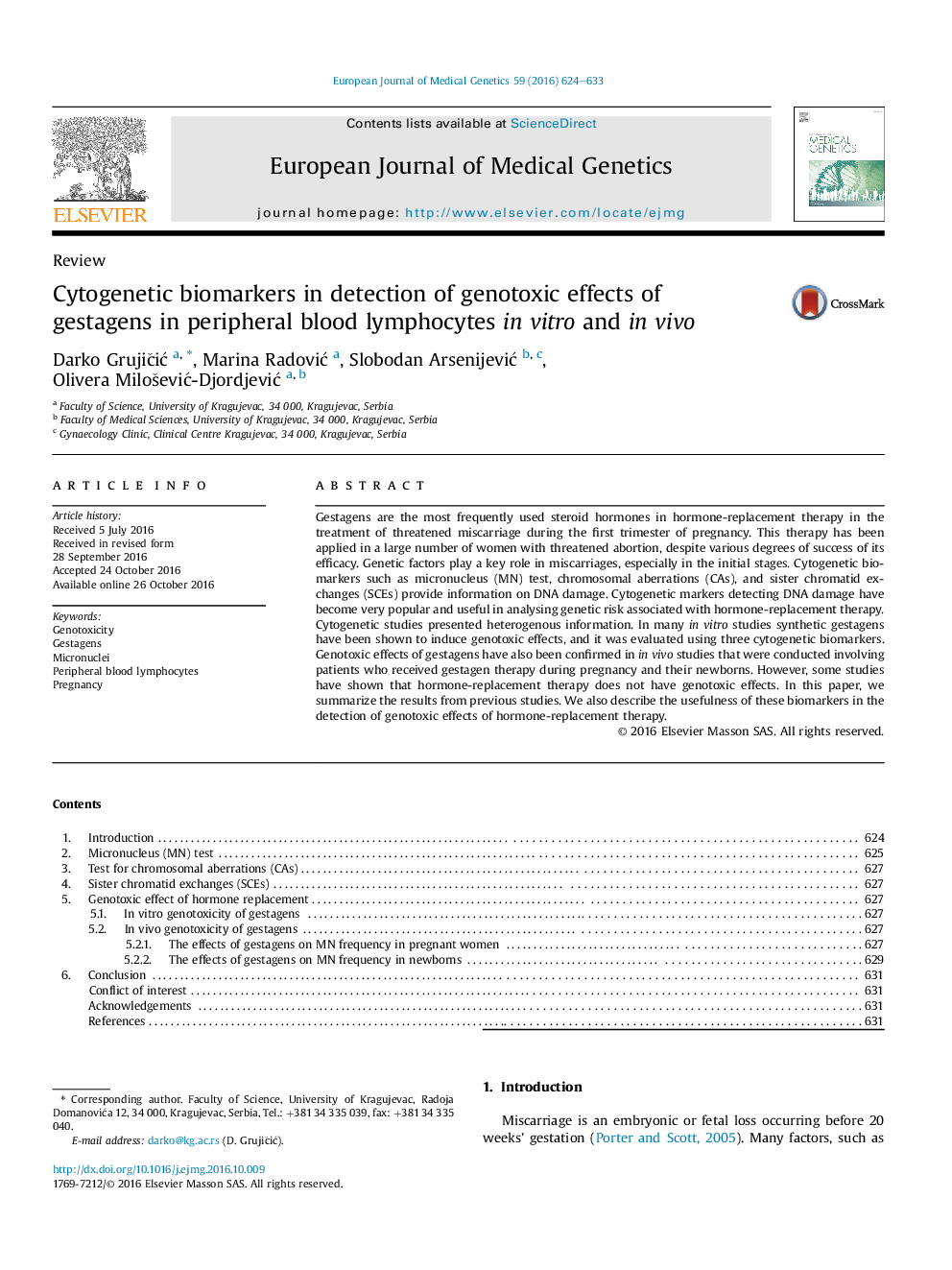| Article ID | Journal | Published Year | Pages | File Type |
|---|---|---|---|---|
| 5589295 | European Journal of Medical Genetics | 2016 | 10 Pages |
Gestagens are the most frequently used steroid hormones in hormone-replacement therapy in the treatment of threatened miscarriage during the first trimester of pregnancy. This therapy has been applied in a large number of women with threatened abortion, despite various degrees of success of its efficacy. Genetic factors play a key role in miscarriages, especially in the initial stages. Cytogenetic biomarkers such as micronucleus (MN) test, chromosomal aberrations (CAs), and sister chromatid exchanges (SCEs) provide information on DNA damage. Cytogenetic markers detecting DNA damage have become very popular and useful in analysing genetic risk associated with hormone-replacement therapy. Cytogenetic studies presented heterogenous information. In many in vitro studies synthetic gestagens have been shown to induce genotoxic effects, and it was evaluated using three cytogenetic biomarkers. Genotoxic effects of gestagens have also been confirmed in in vivo studies that were conducted involving patients who received gestagen therapy during pregnancy and their newborns. However, some studies have shown that hormone-replacement therapy does not have genotoxic effects. In this paper, we summarize the results from previous studies. We also describe the usefulness of these biomarkers in the detection of genotoxic effects of hormone-replacement therapy.
